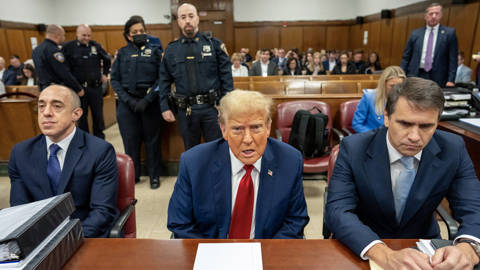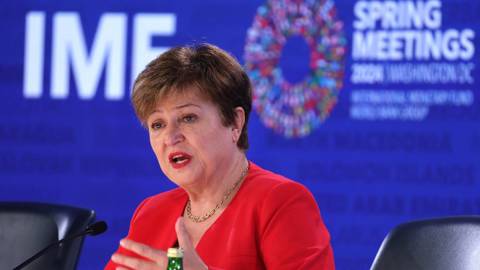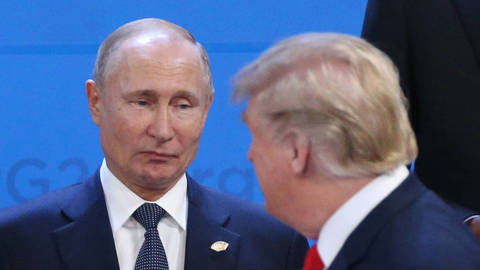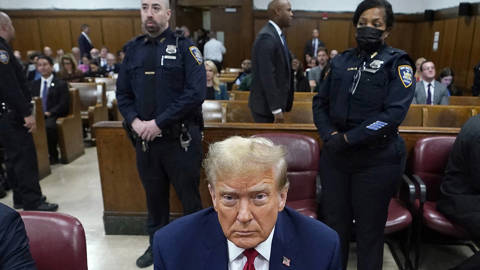https://prosyn.org/x84mIwX
New Comment
Email this piece to a friend
Contact us
Please select an option
Please wait, fetching the form
Please wait, fetching the form
Please wait, fetching the form
Please wait, fetching the form
Please wait, fetching the form
Please wait, fetching the form
Please wait, fetching the form
We hope you're enjoying our PS content
To have unlimited access to our content including in-depth commentaries, book reviews, exclusive interviews, PS OnPoint and PS The Big Picture, please subscribe










The Financial Times has recently made a shortlist of the main contenders for the position of President of the European Commission. At this critical juncture for European integration it is important to identify the criteria that the successful candidate must have to meet the tremendous challenges facing the EU. Given the complexity of building the next phase of European Monetary Union (EMU), someone with dexterous policy skills in international economic and financial institutions is required. This process, however, has been halting for the past few years due to fundamental political disagreements between the member states and so a candidate with political experience is also a necessity.
Subscribe to PS Digital
Access every new PS commentary, our entire On Point suite of subscriber-exclusive content – including Longer Reads, Insider Interviews, Big Picture/Big Question, and Say More – and the full PS archive.
Subscribe Now
Taking both of these points on board It is clear that Christine Lagarde is the perfect candidate for President of the Commission. After nearly twenty years of politicians being chosen it is time for an administrator and policy specialist to take command. True, as the Financial Times detailed in its shortlist, the IMF would not appoint a European as President for a significant time afterwards if she left before her term was due up, but that was always going to be case regardless. Non-European states were frustrated at her appointment over other candidates and were not going to let another European in again. Besides, the most pressing need for Europe is to appoint a Commission President with in-depth knowledge and experience of international finance in addition to the political nous to fight the Commission’s (Europe’s) corner without alienating member states: Lagarde posses an all too rare combination of both. As leader of one part of the Troika who has implemented rescue packages for economically distressed EU member states, Lagarde has direct experience of the Eurocrisis but from an outsider’s perspective. More recently she has sounded conciliatory notes about the failure of Troika policy and the need to ease the social impact of austerity policies. Finally, her four years as French Minister for Finance give her in-depth knowledge of EMU and extensive participation as an insider in politics at the EU level. Another brilliant French bureaucrat Jacques Delors was central to the founding of the Euro, it would be fitting for a compatriot to complete the Euro.
Just as important but significantly overlooked is the role of President of the Council. The EU has become divided into creditor and debtor states since the development of the Eurocrisis. The role of the Council President has become vital in steering and maintaining the process of continuous negotiation between the competing interests of these two groups of states. Picking Irish Taoiseach (Prime Minister) Enda Kenny would be a decisive factor in bridging this divide. Kenny has led Ireland out of a Troika bailout programme and the country has recently reached a key stage of recovering its economic sovereignty in successfully raising debt at a sustainable cost on the international financial markets. Crucially he has been able to achieve this with broad social harmony and a significant degree of political unity in his coalition government. As a leader of the I in the PIGS group of debtor countries he understands the incredible domestic political pressure governments are under to implement austerity. Having fully implemented Ireland’s Troika bailout programme he has earned the respect of the creditor countries as someone who can be trusted to implement the fiscal discipline required by the Fiscal Compact. This makes him perfectly positioned to broker an agreement between EU member states that is required to allow the new Commission President to complete EMU.
Such an agreement has not happened because of a lack of trust between creditor and debtor states. Debtor states rightly demand a write down of their unsustainable debts to ensure that a full implementation of fiscal consolidation will lead to successful economic recovery. Creditor states are unwilling to countenance such a proposal, as they believe it will halt the imperative for debtor states to implement critical reforms. Having two individuals as Presidents of the Commission and Council who are sympathetic to the needs of debtor states but who have credibility on fiscal consolidation is the key to building the trust required to negotiate the Treaties to resolve the Eurocrisis. While Lagarde and Kenny may not accede to these positions, the ability to bridge this divide between EU member states through policy and politics, should be the main criteria to judge who does.